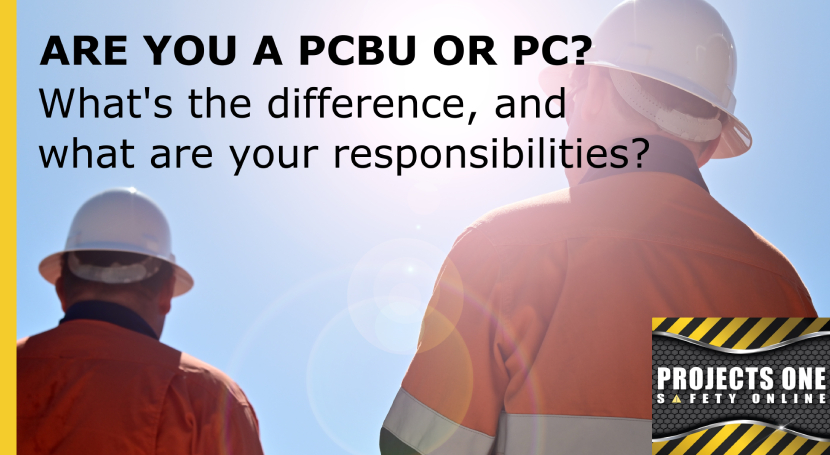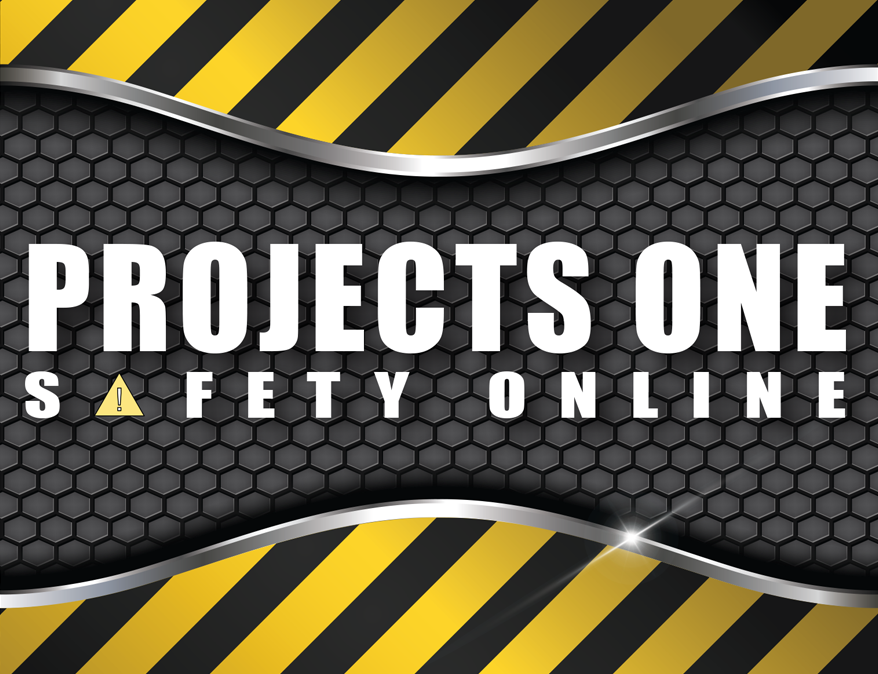
Are you a PCBU or a PC ?
What’s the difference, and what are your responsibilities?
Your responsibilities on a job site can vary depending on whether you are the PC or a PCBU. Let’s break these down so that you can easily work out which one you are.
The definition of a PCBU or Person Conducting a Business or Undertaking is an individual (self-employed or sole trader) or a business (including companies or partnerships) operating a business (an organisation with a view to making a profit) or undertaking (usually not profit-making or commercial in nature).
If you own a business in the construction industry, whether you are a carpenter, plumber, electrician, painter, or one of the many others, you are a PCBU. Great! I hear you say – what does that mean exactly?
A PCBU has a primary duty to ensure the health and safety of workers while they are at work in the business and others who may be affected by the carrying out of work, such as the public or visitors. This requires the PCBU to ensure so far as is reasonably practicable the:
- Provision and maintenance of a safe work environment
- Provision and maintenance of safe plant and structures
- Provision and maintenance of safe systems of work
- Safe use, handling, and storage of plant, structures, and substances
- Provision of accessible and adequate facilities (for example, access to washrooms)
- Provision of any instruction, training, information, and supervision
- Monitoring of workers’ health and conditions at the workplace
- Maintenance of any accommodation owned or under their management and control to ensure the health and safety of workers occupying the premises
Health is defined as both physical and psychological health. As part of its primary duty a PCBU must manage the risks to a worker’s psychological health, so far as is reasonably practicable.
This information and a more detailed explanation of each point can be found on the Safe Work Australia website.
Let’s dig a little further. If you are the manager of a business, are you a PCBU?
- No, you are a worker, and you will not be considered a PCBU under the WHS legislation
- The owner of the business, or the company itself if incorporated is considered to be the PCBU
- If your business is a partnership, each partner is a PCBU and can be held individually and collectively responsible
Can there be multiple PCBUs involved in work at the same location?
- A construction company building a house, the sub-contractors they engage (such as the tilers, plumbers, electricians etc.) and any sub- contractors engaged by them (such as a water proofer employed by the tiler) will all be considered to be PCBUs on that work site.
- Each PCBU owes a duty of care to workers and other persons, and cannot transfer that responsibility to another person. There should be consultation and co-operation between the PCBUs with regard to health and safety.
- When there are multiple PCBUs on a Construction Project, one of them will be the PC, or Principal Contractor
That brings us to the definition of a Principal Contractor. A PC is the contractor with control over the construction phase of a Project. They commission the project themselves, or are appointed in writing by the client (commercial or domestic) to plan, manage, monitor and coordinate health and safety.
So, what is a Construction Project? The definition of a Project differs from state to state in Australia:
- In Qld, NSW, Tas & ACT, construction work valued at $250,000.00 or more
- In Vic, construction work valued at $350,000.00 or more
- In SA, construction work valued at $450,000.00 or more
- In NT, construction work valued at $500,000.00 or more
- In WA, where 5 or more persons will be working on the construction site at the same time
Construction work which doesn’t meet the above criteria is not considered a Construction Project and a principal contractor cannot be appointed.
Can you be both a PCBU and a PC?
- If your business has been engaged by a client to oversee work on a Construction Project and you have sub-contracted tasks to other businesses, then you have joint responsibilities as a PCBU and a PC.
Can there be multiple PCs on a worksite?
- There will only be one Principal Contractor on a construction site. If there are multiple Construction Projects being undertaken at the same time, with different PCs, these sites must be defined as separate and distinct
A PC has specific duties under WHS Regulations, in addition to their duties as a PCBU. These include:
- Displaying signage identifying the Principal Contractor
- Preparation of the Work Health and Safety Management Plan, or if in Victoria, a Health and Safety Co-ordination Plan ( which must be communicated to everyone attending the worksite)
- Obtaining Safe Work Method Statements (SWMS) before any high-risk construction work commences
- Ensuring compliance with specified requirements such as facilities and amenities
- Managing risks to health and safety, and general risks
Let’s look at the two roles on a new house build:
John Smith engages ABC Constructions to build him a home worth $800,000.00. ABC Constructions is a PCBU, and also becomes the PC for this construction project.
ABC Constructions engages other businesses including plumbers, electricians, brick layers etc to carry out the works.
XYZ Plumbing, LMN Electrical and QRS Brickies are all PCBUs and must work with the PC to carry out their tasks as well as their duties to their workers and others on the site. They must read and understand the WHS plan before commencing work, and must give compliant SWMS to the PC for any high risk tasks they will be carrying out.
GHI Roofing has been engaged by XYZ Plumbing. They are also a PCBU and have the same responsibilities as XYZ Plumbing.
The tradesmen employed by these businesses, including the foreman or supervisor are workers. They have a responsibility to work safely and follow the WHS plan.
Whether you are a PC or a PCBU on your next job, the safety of your workers and others on the worksite is your responsibility, and this should be taken very seriously. Everyone deserves to go home to their families at the end of the work day in one piece.
Projects One Safety Online is committed to helping you meet that responsibility. We can assist you to write your SWMS, Risk Assessments, WHS plans and any other relevant safety documents. We can take the stress out of safety with our easy-to-use online platform, or even put together a paper-based safety system for you.
Sue Druery





